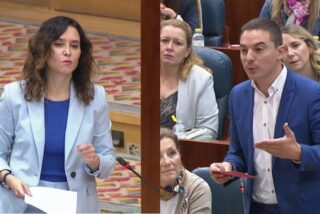Brexit or no Brexit. That is the question. Well, honestly, that is no longer the question. That surprisingly short-sighted, grotesque and illogical issue was, theoretically, solved more than 3 years ago. We will see about that later…
However, lately, the fact of the matter is that the real debate lies in the following statement: either there is a deal before October 31st or we will all have to yield the right-of-way to a hard Brexit. Johnson would be delighted to hear this. Unfortunately or fortunately -I will stick to the latter -, this won’t be so (at least for the time being!). Just a couple of days ago the House of Commons passed a bill which is meant to prevent any form of hard Brexit. Phew!
Does this mean that a new deal is going to be struck before the deadline? Highly unlikely, in my opinion. Extension is the word, and the EU the lenient and easygoing parent whose mischievous son (or daughter – we already have enough problems, why want to offend anybody else?) ends up getting his/her way day in, day out. This is starting to really take the biscuit, don’t you reckon?
As a law student, I really could go into all the technical details, but I really believe that this problem will be solved -if ever- in the political arena. I mean, the law is not even clear anymore. Or maybe it is, but at least not to any ham-and-egger. What sense does it make that the UK’s PM can suspend Parliament without having to dissolve the Chambers and call for an election? What kind of separation of powers is that? Taking a quick look at comparative law, Spanish and French Constitutions both allow a sort of suspension of Parliament, but always followed by the dissolution of the Chambers and, therefore, a snap general election. The USA’s Constitution directly does not allow for the dissolution of its Parliament (“Congress”). This is clearly a sensitive issue, which possibly leads to the debate of why the UK still has not got a written Constitution as such – ruling one of the biggest empires in history with consuetudinary law, case law, social consensus and a bill that dates from the late 17th century is really improbable, in my humble opinion. However, this controversy will have to wait, as we are losing our train of thought quite a bit here…
Once I have regained my footing, I must warn you that I am neither a legal scholar (at least not yet) nor a specialist in the British legal system. Nevertheless, I consider that Law will finally have a role to play in all this hullabaloo. Already, the bill passed by the House of Commons, which will sooner or later be turned into a law, has thwarted the Conservatives’ – or at least what is left of them – no-deal plan. What I and, I suppose, scores of other people worldwide are waiting for is for the EU lawmakers to take action. Alas, I still have not studied this subject at university, and due to the Erasmus experience that I am about to undertake, I will not be studying European law in depth till a year from now. That said, it is negatively surprising how the European institutions have given in so much in this Brexit issue, given the fact that the UK leaders have been playing around with the 27 for more than 3 years now. It is undoubtedly the case that we are all scared to face a no-deal Brexit. But my question is, will a deal really solve anything? I mean, what kind of deal is ideal? Consensus in the British Parliament is proving to be a painstaking task; imagine
then a social consensus in the UK itself. Theresa May failed to put forward her deal to Parliament; Boris Johnson, however, focused on the matter in a different way, by going for a hard Brexit head on. What’s the “deal” then? Because if MPs rejected May’s agreement which did not even contain a customs union with the EU, what will they accept? Not including the so-called “backstop plan” (no hard border between both Irelands) would be as close to a no-deal Brexit as it can get. So, really, what’s the “freak.. deal”?
Donald Tusk, European leaders: “Do not give another extension to Brexit without a mandatory requirement alongside it – a new referendum in the UK.” A wise political scientist once told me: “El hecho de que los políticos cambien en función de los tiempos y las demandas, creo que es precisamente la promesa democrática. Habíamos diseñado un sistema en el que generamos una estructura de incentivos para que los políticos se ajusten, no a sus preferencias, sino a las preferencias de la ciudadanía. Que las preferencias de la ciudadanía cambien y cambien tus políticas, eso creo que es una virtud de las democracias. Lo digo porque se suele dar excesivo “pedigree” o excesivo valor a la consistencia, a la coherencia. La coherencia es buena, en parte. La flexibilidad y el acomodo creo que es un valor que no está suficientemente valorado en nuestro entorno. Y, sin embargo, creo que es uno de los valores que tienen nuestros sistemas: que seas flexible, que te acomodes, y que tus ideas pueden ser estas u otras” (Lluis Orriols, 2018). A bit of bilingualism will not do you any bad…
And, my friends, he was quite certainly right. Our political class must adapt to our everyday changing and volatile society. Thus, after so many months of social unrest in the UK, where both politicians and citizens are at a standstill, a stalemate or whatever you wish to call it, it is clear that the way British people thought when they cast their ballots in June 2016 has completely changed. And, hence, the representatives of the people must make a move and ask for the British society’s opinion once again. Let us not make this any more complicated. Brexit penalizes all of us in the EU, and it seems that finally many British citizens have realized this. Or at least it seems that opinions have varied and Parliament has become delirious…so, is not a new referendum the most reasonable option? We seem to forget that “Democracy” stands for “the rule by the people”. Maybe we ought to analyze the quality of our democracies, then. But, wait a second, who has the power to organize a new referendum? And who has the ability to analyze our democracies? It is clear that the answer to the first question is Johnson (with Parliament passing the corresponding legislation, obviously). The answer to the second one is bleaker, though. But then, once again, who voted to get Johnson to power? Well, his case is special one, as it was a party leadership election. However, Bolsonaro, Trump and Erdogan got to power by a general election (even if the latter’s election has always been considerably contested). So maybe, at the end of the day, what we ought to do is to reconsider our foundations… #SAVETHEWORLD #THEREVOLUTIONSTARTSTODAY









































